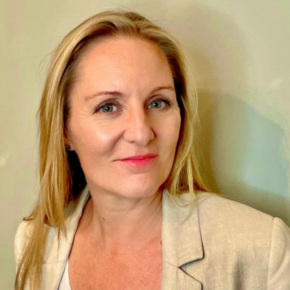PWA – Hi Jo. We love to hear from our success stories, so it’s great to talk to you. Firstly, what crime, mystery or suspense books and authors have inspired your writing?
Jo Furniss – Thanks for having me! Well, I’ve always enjoyed a good old page-turner, and even while studying English Literature I was drawn to suspense via classics such as Frankenstein, The Woman in White or Rebecca. Those period novels use setting so well to create atmosphere and dread.
Over the years, most of my favourite writers have had a taste for the gothic; I’m thinking of Iain Banks and, more recently, Gillian Flynn.
There are certain authors who write within the genre, but also seem to follow their own writerly whims and create novels that stand out for their originality and the sheer quality of writing, such as Tana French and Belinda Bauer. I’m delighted to see Bauer recognised with a Booker nomination.
PWA – In your opinion, is there a key element to any or all successful crime stories?
JF – As both a reader and a writer, it would have to be ‘emotional investment in the characters’. I hate to say it, but I’ve encountered too many crime novels and thrillers that delight me with an intriguing premise that quickly fades into a kind of grim persistence to reach the end.
Compare that to one of those novels that you can’t put down — the ones I hold in one hand while stirring pasta for the kids’ dinner with the other — and it’s always the depth of the characters that make the difference.
The Writing Crime Fiction course shaped The Trailing Spouse in one very dramatic way, by giving me a new character who demanded her own story to be told!
PWA – Why did you choose Professional Writing Academy’s Writing Crime Fiction course?
JF – At the time, I had just started writing The Trailing Spouse. My first novel, All the Little Children, is a bit of an odd fish as it doesn’t sit firmly in one genre. But, I realised that The Trailing Spouse was absolutely a domestic thriller. I felt that the Writing Crime Fiction course could give me some useful lessons on structure and pacing.
PWA – How did the course help shape your book?
JF – The course shaped The Trailing Spouse in one very dramatic way, by giving me a new character who demanded her own story to be told! So, the novel went from a single protagonist to a dual narration.
To this day, it’s the most mysterious moment I’ve had as a writer, because I sat down to write a 1,000-word piece for the course and the character of Camille Kemble popped into my head as though she’d walked into the room.
I knew her entire backstory, personality and voice immediately — in fact, sections of that 1,000-word exercise went right into the book.
I love the structure and focus of online courses. With young kids in my life, I like being able to access the material at my own pace
– Jo Furniss
PWA – How would you compare the online learning environment and structure with PWA compared with, say, conferences, events or festivals?
JF – So far, I have completed an MA and the PWA online course and I love the structure and focus. With young kids in my life, I like being able to access the material at my own pace.
I also prefer having a little thinking time to write and also to consider my peer reviews before posting. The social side of conferences and festivals is great but, personally, I don’t find it conducive to producing work.
PWA – What were your main struggles with this book and how did you overcome them?
JF – Everyone told me that The Trailing Spouse was structurally very ambitious, and I only realised quite how much once I was too committed to turn back!
My first novel, All the Little Children, had been simple – one character, first-person, moving forward in time. Suddenly, in The Trailing Spouse, I had to juggle two narratives whose stories needed to lock together like the teeth in a zip.
On top of that, I had to pull off a lot of misdirection and a ‘big reveal’. Finally, I will never again so long as I live include another ‘countdown clock’ in a novel – my goodness, working out that timing drove me and two editors to distraction.
In fact, overall, this is a novel that would never have reached a publishable state without the clarifying input of my Lake Union editors.
I learnt from The Trailing Spouse that, for me — this won’t be true for all writers, which I think is important to add — to control those twists and turns, I should have planned the mid-section more carefully.
– Jo Furniss
PWA – What are your tips for creating and developing characters and plots?
JF – Personally, I think that the development of character and plot has to be synonymous – one can’t exist without the other. You know those crazy staircases at the fairground, where each foot moves separately? It’s like that.
The character takes a step up, then you need to bring the plot in line, then that plot development will affect the character, and so on. It’s a feat of coordination and a little dizzying.
PWA – Give us a brief synopsis of your writing approach. For example, do you undertake careful planning, freewriting or any other techniques?
JF – This is the first time I’ve written a book to the deadline, so I’ve planned my third novel more precisely than the previous two.
I learnt from The Trailing Spouse that, for me — this won’t be true for all writers, which I think is important to add — to control those twists and turns, I should have planned the mid-section more carefully.
I seem to remember that I planned tightly up to about halfway and then got impatient and jumped in. It worked out in the end but took a lot of pulling into shape after it unravelled.
So, the third novel has been planned out on index cards, but I allow myself total flexibility because things do change along the way — I see the plan as a guide rather than a roadmap.
PWA – Thank you for the great answers, Jo. Good luck with the novel!
JF – Thank you!
Jo Furniss, a student from our Introduction to Writing Crime Fiction course, landed her first book deal in 2017 while learning online with Professional Writing Academy. As of 2024, Jo has a new publishing contract to write four “locked-room” crime novels. The first is Dead Mile, a murder mystery set on a gridlocked motorway, due to arrive in July 2024.























